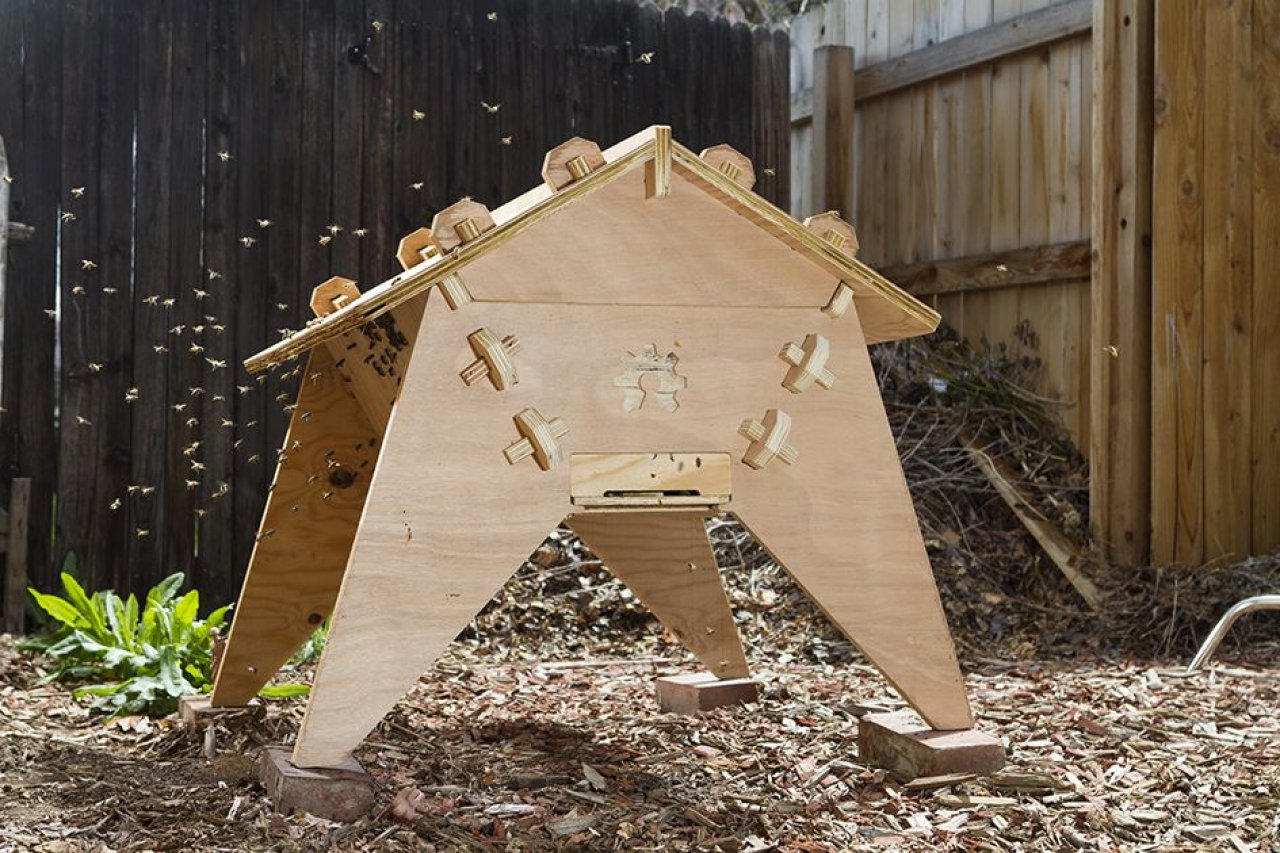Bees are dropping like flies. Colony collapse disorder, the mysterious global epidemic in which honeybees suddenly disappear or die, has wiped out over 10 million hives since 2007 in North America alone. But an international collective of designers and hackers has a plan: They've developed an open-source, printable "smart" hive they hope will help unravel the secret of the disappearing bees.
Anyone can download plans for Open-Source Beehives (OSBH) for free, and parts can be cut from a single 4-by-8-foot sheet of wood by a computer-controlled cutting machine called a CNC router, which is found at most woodshops. The hives take minutes to assemble and require no nails or glue.
The group's latest endeavor, which recently raised more than double its $20,000 crowdfunding goal, takes the project a step further by adding an in-hive sensor that will track and log potentially harmful variables like humidity, light intensity and temperature inside the hives. It's all transmitted to a sleek online platform called Smart Citizen, which can let hive owners know when their bees are in danger. The idea is to get these low-cost "smart" hives into backyards around the world, help build the bee population back up and develop an online network of real-time hive data that researchers can use to figure out why bees are dying out.
Tristan Copley Smith, a filmmaker and open-source activist who co-founded OSBH, anticipates that the sensors will ultimately connect colony collapse to neonicotinoid insecticides, which the EU has banned in light of studies that link them to increased susceptibility to viruses in bees. That theory is up for debate: A U.S. Department of Agriculture report last year, for example, determined that no single class of pesticides could be unequivocally blamed for colony collapse, pointing instead to a "complex" combination of stressors. And companies that manufacture neonicotinoids have sponsored research defending the chemicals as safe. But Copley Smith predicts crowdsourced beehives will end the debate and, ideally, save the bees.





















